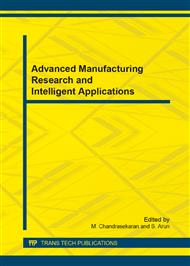p.81
p.85
p.89
p.94
p.98
p.103
p.108
p.112
p.116
Variation in Residual Stresses due to Thermal Cycling Induced on the Hardfaced Grid Plate in PFBR
Abstract:
In sodium cooled fast breeder reactors, the high operating temperature necessitates hard facing of grid plate to avoid galling and to reduce the wear loss of the base material . Nickel-base cobalt-free alloy called Colmonoy-5 has been chosen as the hard facing material for the Prototype Fast Breeder Reactor (PFBR) grid plate. The grid plate (GP) which is a critical component made of 316 LN SS that holds the core subassemblies are hard faced, to prevent galling and also to minimize wear caused by subassembly insertion/removal and erosion due to high sodium velocity at 670 K. Thermal cycling of hard faced circular grid plate made by Plasma Transferred Arc Welding (PTAW) generates residual stresses due to differential shrinkage of the molten deposit and difference in coefficients of thermal expansion between the deposit and substrate material. In this project the effect of thermal cycling of a nickel-base hardfacing alloy deposited on an austenitic stainless steel grid plate was studied. Finite element analysis of hard faced circular grid plate is performed for obtaining residual stress which includes elasto-plastic analysis. Coupled thermo-mechanical analysis is done for thermal cycling of hardfaced circular gridplate to quantitatively estimate the residual stress.
Info:
Periodical:
Pages:
98-102
DOI:
Citation:
Online since:
July 2014
Authors:
Price:
Сopyright:
© 2014 Trans Tech Publications Ltd. All Rights Reserved
Share:
Citation:


